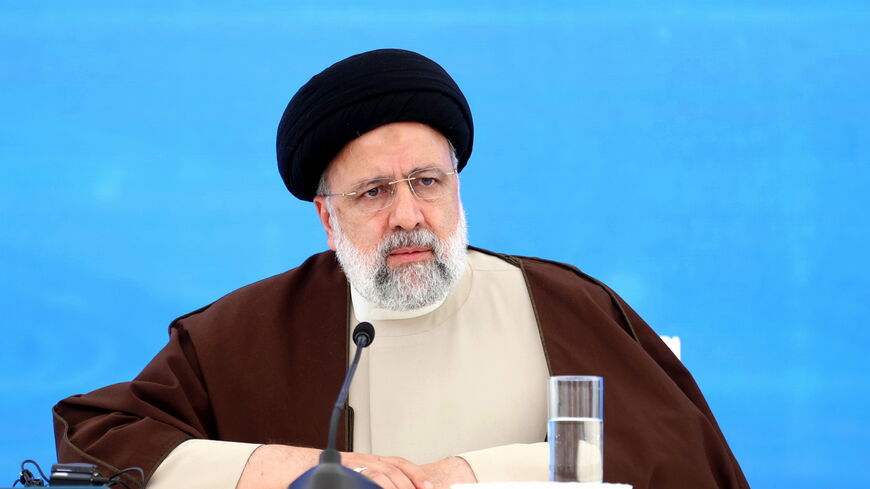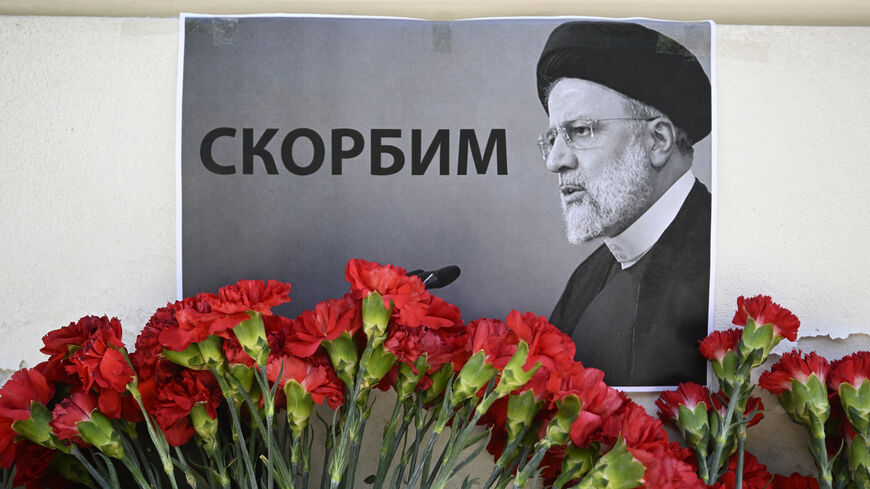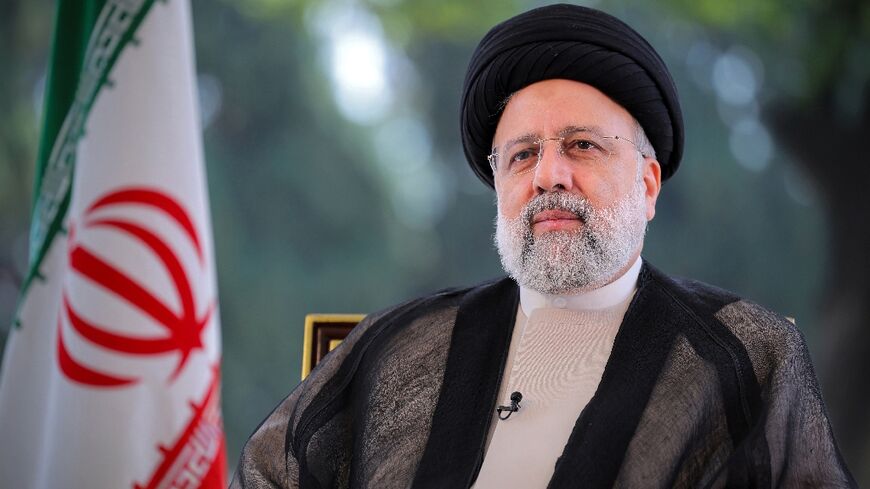Who was Ebrahim Raisi, Iran’s president killed in helicopter crash?
Raisi, who died in a helicopter crash near the border with Azerbaijan, was a hard-line cleric under US sanctions whose term was marked by domestic turmoil and mounting tensions with the West.

Iranian state media on Monday confirmed the death of President Ebrahim al-Raisi in a helicopter crash in a densely forested area in East Azerbaijan province, after hours of search and rescue operations hampered by weather conditions.
Raisi, 63, along with several other senior officials, including Foreign Minister Hossein Amir-Abdollahian, were returning from the Khoda Afarin region after inaugurating a dam on Iran's common border with Azerbaijan when their helicopter crashed on Sunday amid heavy fog and rain, according to Iranian state media.
Two other choppers in the convoy carrying officials landed safely.
Who was Raisi?
Raisi became Iran’s eighth president after winning the June 2021 elections, which were marked by the lowest voter turnout since the founding of the Islamic Republic, in 1979. Iran’s interior minister confirmed at the time that only 41% of the 61 million eligible voters, that is, around 25 million, had cast ballots.
Succeeding the relatively moderate Hassan Rouhani, Raisi assumed office in August 2021.
Always seen in public wearing the black turban signifying descent from the Prophet Muhammad, Raisi was a hard-line cleric often viewed in Iran as defiant of the West and strongly wed to conservative principles. He criticized the landmark 2015 nuclear deal that Rouhani struck with the major world powers, including the United States. Under Raisi’s term, Iran ramped up its enrichment of uranium to near weapons grade.
Raisi's tenure was prominently marked by the massive protests that broke out in September 2022 following the death in custody of Mahsa Amini, a 22-year-old woman arrested by the morality police for allegedly violating the Islamic dress code. The protests initially centered on women’s rights but subsequently broadened to encompass calls for the fall of the Islamic government.
Security officials responded to the demonstrations by launching a violent crackdown against protesters and activists, killing more than 500 people and arresting thousands of others between September 2022 and January 2023, according to the US-based Human Rights Activists News Agency.
This period also saw a spike in executions, with at least 834 people put to death in 2023 compared to 582 in 2022, according to the Norway-based organization Iran Human Rights (IHR) and Paris-based Together Against the Death Penalty. So far this year, 226 people have been executed according to an IHR tally.
Raisi, who was close to Iran's supreme leader, Ayatollah Ali Khamenei, accused foreign actors of fomenting the 2022 unrest. “Following the failure of America in militarization and sanctions, Washington and its allies have resorted to the failed policy of destabilization,” Raisi said in October 2022.
More recently, Raisi backed Hamas following its Oct. 7 surprise assault on southern Israel, which prompted the ongoing war in the Gaza Strip. Iran’s proxies in the region, including Hezbollah in Lebanon and the Houthis in Yemen, have since launched attacks against Israeli interests.
On April 13, the Islamic Revolutionary Guard Corps (IRGC) launched hundreds of drones and missiles at Israel in retaliation for the suspected Israeli airstrike on its consulate in Damascus that killed at least seven people, including two IRGC commanders, on April 1. Raisi hailed Iran’s unprecedented attack and vowed a “massive and harsh” response to any Israeli retaliation.
Under Raisi's tenure, Iran reached a landmark deal, mediated by China, to normalize relations with Saudi Arabia after a seven-year rupture.
Early life, career
Ebrahim Raisi was born on Dec. 14, 1960, in the Noghan district of the northeastern city of Mashhad. In 1983, he married Jamileh Alamolhoda, daughter of the ultraconservative Shiite cleric Ahmad Alamolhoda who has close ties to Khamenei.
The couple has two daughters.
Raisi received a religious education, at the age of 15 attending a seminary in Qom, the center of Shiite learning. He later attended Shahid Motahari University, in Tehran, where he reportedly received a doctorate in Islamic jurisprudence and law, according to the Iranian presidential website. Raisi's opponents have often contested his educational background.
The future hard-line president was also reportedly involved in the events of 1978–79 leading up to the Islamic Revolution that toppled the Western-backed shah.
In 1985, Raisi was appointed deputy prosecutor for Tehran. Later, in 1988, he sat on the committee that oversaw the mass execution of thousands of political prisoners accused of collaborating with Iraq during the Iran-Iraq War (1980–88). In a 2022 report, Human Rights said it had documented “overwhelming evidence” showing that the mass executions amounted to “crimes against humanity.”
In November 2019, the US imposed sanctions on Raisi for alleged human rights violations, including the 1988 executions.







